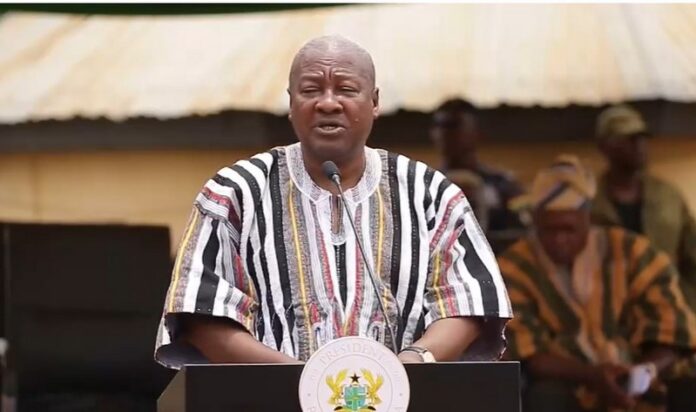The President of the Federation of Associations of Ghana Exporters (FAGE), David Korboe, has raised a critical concern about Ghana’s dependency on Western trade.
Speaking on the Joy FM Super Morning Show, Mr. Korboe stressed the urgent need for the country to break free from the dominance of Western markets and explore alternative trading partners, particularly within Africa and Asia.
Mr. Korboe’s comments follow the recent decision by US President Donald Trump to impose a 10% tariff on Ghana, a move that has caused significant alarm within the business community.
“It is high time we critically examined this issue,” Mr. Korboe remarked. “Why should we allow Western markets to dominate our trade? We have other viable options available to us, such as the Chinese market and the broader African market, which is worth over $20 trillion. These are opportunities we must pursue.”
Mr. Korboe argued that Ghana cannot afford to continue relying on the West for its trade.
“If we keep allowing ourselves to be swayed by the West, it will lead to problems for us in the long term. Trump’s move didn’t surprise me. His focus was on creating jobs for Americans, which inevitably meant making sacrifices in international trade. This should serve as a wake-up call for us to explore alternative markets,” he said.
He also pointed to the significant potential of Africa’s own trade agreements, especially the African Continental Free Trade Area (AfCFTA), which offers immense opportunities for intra-Africa trade.
However, Mr. Korboe acknowledged that logistical challenges remain a significant barrier to accessing these markets.
“The main obstacle holding us back is logistics,” Mr. Korboe explained. “We already have existing markets we cannot simply abandon. Therefore, we need to continue engaging with these partners while gradually shifting our focus to developing Africa’s own market. This will not only ensure sustainable growth for Ghana but also benefit the entire continent.”
Mr. Korboe concluded by stressing the importance of long-term strategic planning. “Once we successfully develop our own regional trade networks, Ghana will be in a stronger position in global trade. This is the direction we must pursue for the future success of our economy.”

